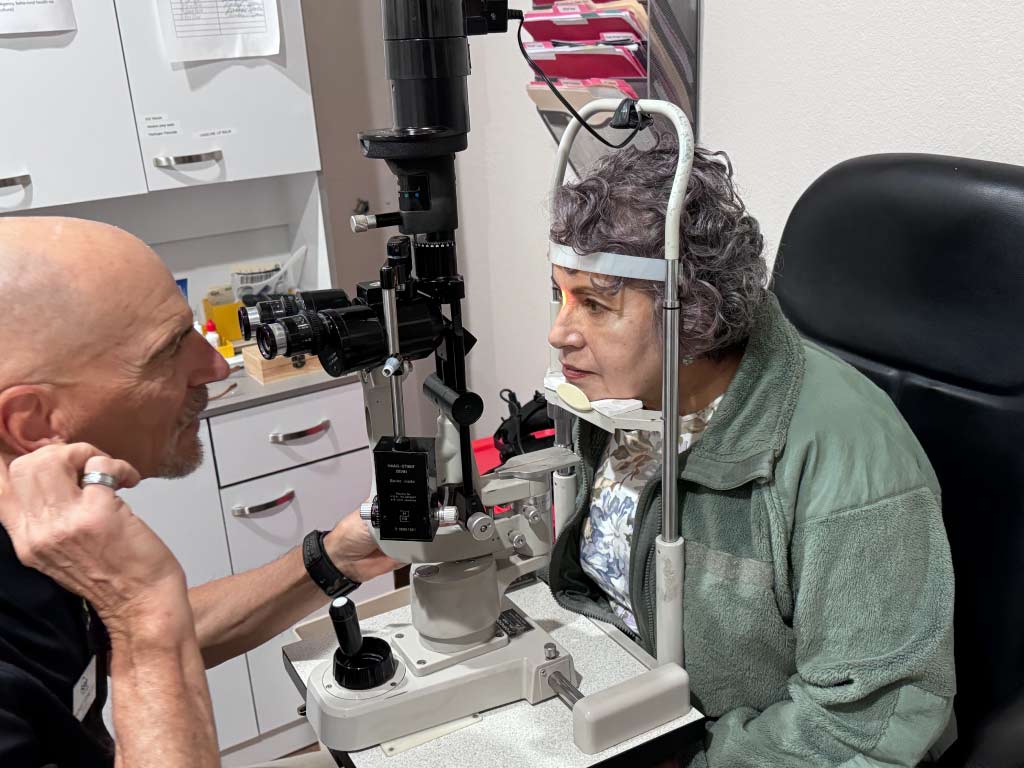Winter Eye Care
The combination of winter weather, dry air, and indoor heating can dry out eyes, causing itchiness, sensitivity, and redness. Prevent eye irritation with:
- Humidifiers: Using a humidifier can regulate airflow in your home, prevent the eye dryness associated with winter air and indoor heating.
- Eye Drops: Over-the-counter eye drops can alleviate dryness and itchiness by locking in moisture. This is especially important for contact lens wearers.
- Sunglasses: Winter weather can enhance the effects of UV rays as they reflect off ice and snow. However, wearing sunglasses can protect your eyes from damaging UV exposure.
- Washing Hands: Prevent the spread of conjunctivitis by washing your hands frequently and avoid rubbing or itching your eyes.
Spring Eye Care
Know the symptoms of spring allergies and visit your eye care provider if you experience the following:
- Itchy eyes
- Red eyes
- Watery eyes
- Eye pain
- Blurred vision
Tips
- Wear Sunglasses and a Hat: Wearing polarized lenses and a hat when spending time outdoors can protect your eyes from the sun’s harmful UV rays.
- Wash Your Hands: Spring allergies that make your eyes itch can make it tempting to rub your eyes, and washing your hands frequently can help prevent the spread of infection.
- Invest In Over-the-Counter Eye Drops: Topical antihistamine drops can offer effective relief of eye allergy symptoms by washing away irritants and lubricating dry eyes.
- Minimize Allergens in Your Home: Vacuuming, wiping down surfaces, using an air purifier, and washing your clothes and linens regularly can protect you and your family from allergens in the home.
- Keep Your Contact Lenses Clean: Remember to clean and replace your contact lenses frequently or consider switching to daily disposable lenses to prevent the accumulation of pollen and other allergy-causing debris.
Summer Eye Care
- Protect Your Eyes When Swimming: Wearing swim goggles can protect your eyes from infection caused by swimming pool chemicals and bacteria in rivers, lakes, and oceans. Also, remember to remove contact lenses prior to swimming to prevent the exposure of your contacts to infection-causing bacteria in water.
- Stay Hydrated: Staying hydrated can help keep your eyes moist even in the sun and wind when spending time outdoors. Also, keep your eyes moisturized with eye drops to eye drops can alleviate dryness and itching.
- Avoid Allergens: Keep windows closed and surfaces clean to prevent allergens from entering your home and causing eye irritation. Also, consider wearing glasses instead of contacts, which can trap allergens and debris in your eyes.
- Accessorize: Sunglasses can protect your eyes from harmful ultraviolet radiation from the sun, especially UV rays reflected off water and sand. Hats can offer your eyes additional protection from UV rays when spending time outdoors.
Fall Eye Care
- Wash Your Hands: Prevent the spread of the flu and conjunctivitis by washing your hands frequently and avoiding rubbing itchy eyes.
- Avoid Allergens: Drive with your windows up and keep home surfaces clean to avoid airborne allergens such as pollen, dust, and mold.
- Use a Humidifier: A humidifier can moisten dry eyes caused by indoor heating and filter allergens and irritants in the air.
- Wear Sunglasses: Ultraviolet radiation from the sun is still a concern in the fall, and wearing sunglasses can protect your eyes from UV rays.
- Use Eye Drops: Eye drops moisturize and lubricate eyes, preventing dryness and irritation from dry fall air and indoor heating.






